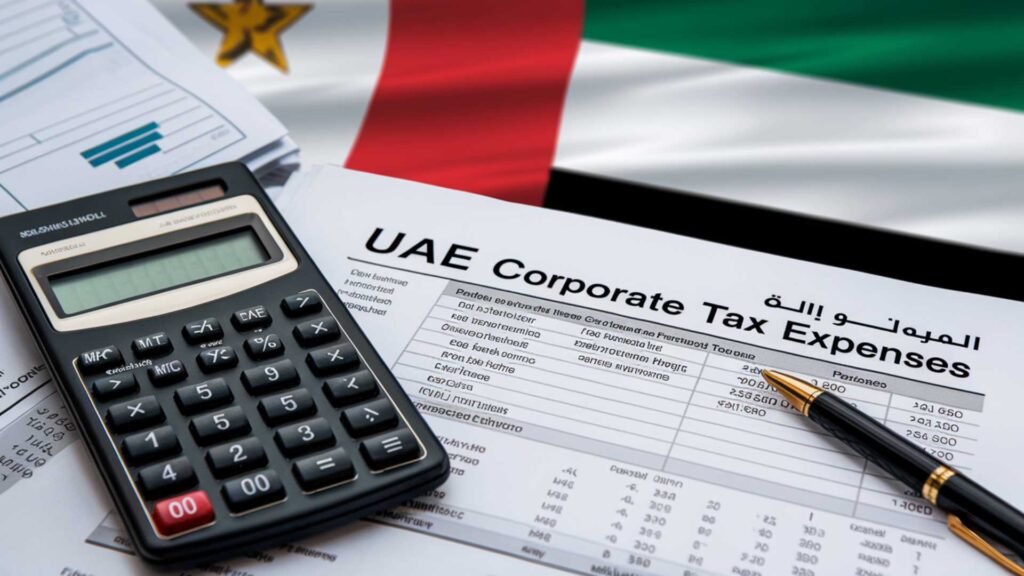Brief overview of corporate taxation complexity
Navigating corporate taxation is never simple. In the UAE, the landscape changed in June 2023, marking a fundamental change in the business taxation environment. This new framework applies a standard 9% corporate tax rate on taxable income exceeding AED 375,000, affecting most mainland businesses.
However, free zone companies benefit from preferential tax regimes designed to promote economic growth within the UAE’s designated free zones. While the rate itself is straightforward, understanding the nuances especially concepts like qualifying income can make a huge difference in compliance and savings.
Let’s break down what this means, why it matters, and how companies particularly those in free zones can benefit.
What is Qualifying Income in UAE Corporate Tax?
Qualifying income refers to specific categories of income that are eligible for a 0% corporate tax rate when earned by Qualifying Free Zone Persons (QFZPs). This concept was introduced under the UAE Corporate Tax Law and Cabinet Decision No. 55 of 2023 to encourage economic activity within free zones and stimulate international business operations.
Essentially, qualifying income is income derived from transactions and activities that meet the criteria set forth by the UAE Federal Tax Authority (FTA) and related legislation.
Understanding Corporate Tax in the UAE
The UAE corporate tax regime is built on a 9% standard rate, applied to taxable profits exceeding AED 375,000. Small businesses and start-ups below this threshold enjoy relief, allowing them to reinvest more into growth.
One of the unique features of the UAE framework is its treatment of free zone companies. Free zones were established to attract international investors, offering benefits like 100% foreign ownership, full profit repatriation, and now, preferential tax treatment
Free zone companies, which operate under special regulatory environments, can benefit from 0% tax on qualifying income if they satisfy certain substance and activity requirements. This distinction seeks to balance tax revenues while supporting free zones as strategic hubs for trade, manufacturing, logistics, financing, and investment activities.
Definition of Qualifying Income
Qualifying income is defined as income derived from transactions that align with qualifying business activities conducted within the free zone or with other qualifying free zone persons. This income excludes revenue from excluded activities, such as certain regulated financial services, real estate leasing to mainland entities, and other activities as prescribed by ministerial decisions.
Examples include:
· Transactions with other free zone businesses.
· Income from overseas operations.
· Certain regulated activities approved by free zone authorities.
This careful categorization prevents misuse while rewarding businesses that contribute to the UAE’s global competitiveness.
Qualifying vs. Non-Qualifying Income
| Qualifying Income | Non-Qualifying Income |
| Income from transactions with other qualified free zone persons | Transactions with UAE mainland entities (not considered qualifying) |
| Export sales, income from branches or subsidiaries abroad | Domestic mainland sales to UAE consumers |
| 0% corporate tax (if all requirements are met) | 9% corporate tax (above AED 375,000 threshold) |
| Supports UAE’s vision of fostering international hubs and free zone development | Focused on domestic market activity outside the free zones |
This distinction is vital. For instance, a logistics company in Jebel Ali Free Zone shipping goods internationally could retain a tax-free advantage, whereas income from selling directly to a mainland UAE retailer would be taxable.
Benefits of Qualifying Income for Free Zone Companies
For free zone businesses, qualifying income offers two major advantages:
- The ability to apply a 0% corporate tax rate on qualifying revenue helps companies remain globally competitive. Instead of directing profits toward tax payments, businesses can reinvest in operations, innovation, and workforce growth.
- Free zones were designed to attract global talent and capital. By ensuring that qualifying income enjoys favourable tax treatment, the UAE strengthens its position as a hub for trade, finance, and technology.
For companies eyeing expansion into the Middle East, this can tip the scales in favour of establishing operations in the UAE.
Role of a Tax Consultant in UAE
Given the complexity of corporate tax legislation and the rigorous requirements to maintain qualifying income status, determining which transactions fall under this category, maintaining proper documentation, and ensuring compliance with ever-evolving guidelines requires expertise.
That’s where the guidance of a Corporate Tax Consultant in Abu Dhabi becomes invaluable.
· Advising on qualifying income criteria and helping classify income correctly.
· Ensuring compliance with FTA filing and reporting obligations to avoid penalties.
· Optimizing tax planning strategies to minimize corporate tax liabilities legally.
· Acting as intermediaries with the Federal Tax Authority during audits or inquiries.· Keeping businesses updated on evolving tax regulations and legislative changes.
Final Thoughts
For free zone companies, understanding UAE corporate tax qualifying income is critical to maintaining their competitive advantage.
In essence:
· Qualifying income ensures that free zones retain their appeal.
· Non-qualifying income brings free zone businesses into the same tax net as mainland entities.
· Professional advice helps navigate these complexities with confidence.· For businesses committed to growth, the message is clear: embrace the new system, learn the rules, and leverage the opportunities that qualifying income provides.
This article reflects the latest legislation and guidance around qualifying income in the UAE corporate tax context, emphasizing the value of tax consultants in Abu Dhabi to assist businesses in compliance and optimization efforts


